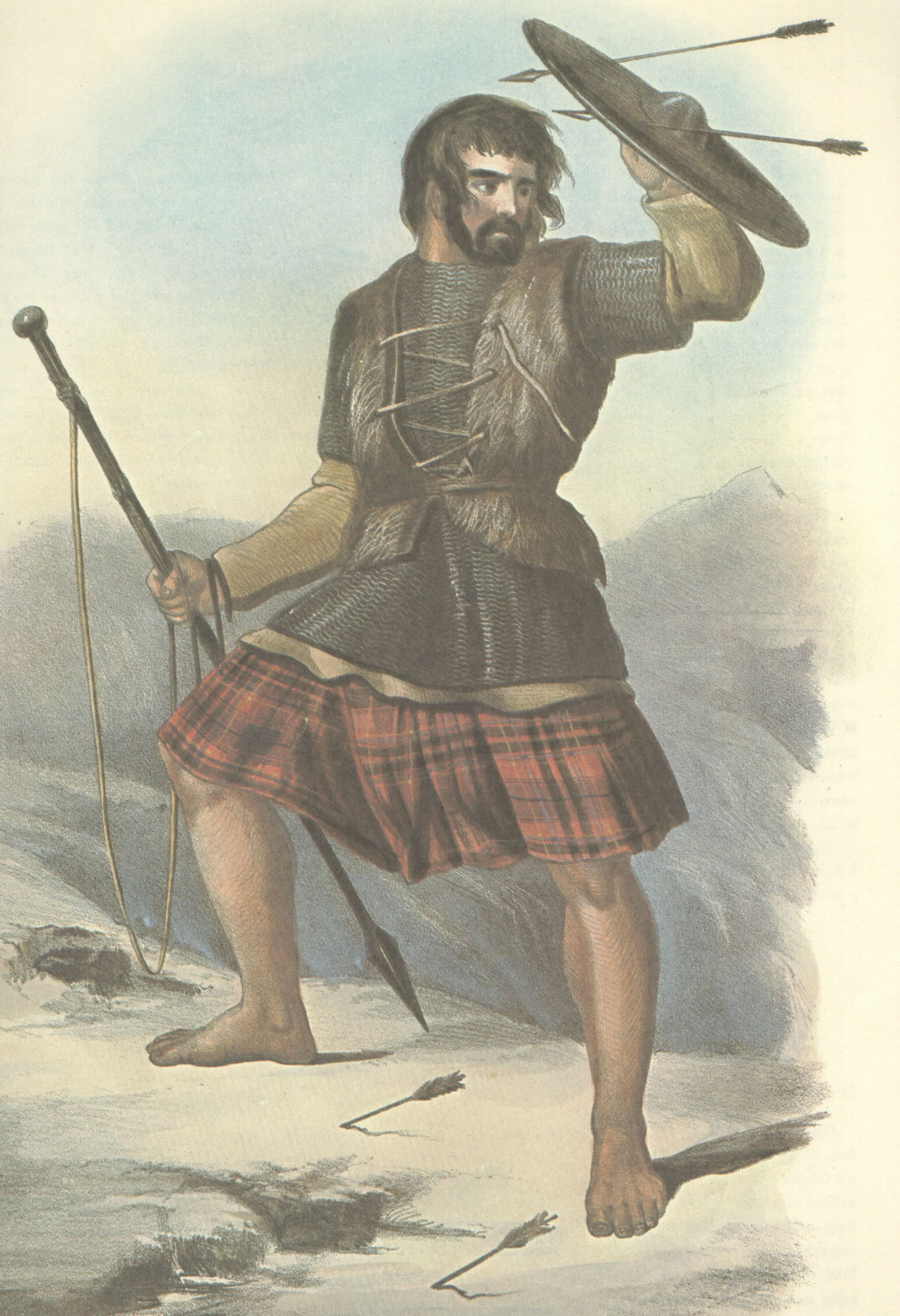The Skye Bowmen
After the slaying of the last Chief of Clan
MacInnes at Ardtornish Castle, it is said that a descendant of the brother
of the Chief took five long boats, each with a family group in it, and sailed
to the Isle of Skye near Morvern. Here they thought the favour of the MacDonalds
no doubt remembering the ancient pledge. These long boats came to Skye in
the early 15th century.
The most famous of the descendants of these families was one called Naill (Neil). MacKinnon of Strath tool Neil into his employment as a cowherd. MacKinnon had a great bow that only himself could draw to its farthest extent. One day he gave the bow to Neil and was amazed that Neil drew it.
Some time later MacKinnon was entertaining MacLean of Duart and other chiefs and invited each of them to draw the bow. All failed. Neil was called and he drew the bow with no difficulty. MacKinnon declared, "What a strange thing it is when even my cowherd can draw the bow". MacKinnon made Neil his bowman and granted him and his descendants lands free of rent in return for their services as bowmen. Henceforth, Neil became known as "Niall a'bhogha" or Neil of the Bow. The descendants of this Skye branch adapted the arm and bow as their symbol.
The legend has it that when Neil was an old man, the younger generation refused to believe the tales of his skill and decided to put him to the test. Clad in sheets, several young men hid in the churchyard at Kielchrist (Kiel Church) and arose behind a dyke when Neil arrived. "Spooks or whatever ye be" cried out Neil, "if it's a fight you're wanting, you can have it now - for Neil, the son of John, the son of Ewan has more friends lying in that churchyard than you're thinking". With stick in hand, Neil leaped over the dyke and sent the spooks flying.
The most famous of the descendants of these families was one called Naill (Neil). MacKinnon of Strath tool Neil into his employment as a cowherd. MacKinnon had a great bow that only himself could draw to its farthest extent. One day he gave the bow to Neil and was amazed that Neil drew it.
Some time later MacKinnon was entertaining MacLean of Duart and other chiefs and invited each of them to draw the bow. All failed. Neil was called and he drew the bow with no difficulty. MacKinnon declared, "What a strange thing it is when even my cowherd can draw the bow". MacKinnon made Neil his bowman and granted him and his descendants lands free of rent in return for their services as bowmen. Henceforth, Neil became known as "Niall a'bhogha" or Neil of the Bow. The descendants of this Skye branch adapted the arm and bow as their symbol.
The legend has it that when Neil was an old man, the younger generation refused to believe the tales of his skill and decided to put him to the test. Clad in sheets, several young men hid in the churchyard at Kielchrist (Kiel Church) and arose behind a dyke when Neil arrived. "Spooks or whatever ye be" cried out Neil, "if it's a fight you're wanting, you can have it now - for Neil, the son of John, the son of Ewan has more friends lying in that churchyard than you're thinking". With stick in hand, Neil leaped over the dyke and sent the spooks flying.
It is interesting to note that not only did the MacInneses serve MacKinnon as bowmen and instruct the clansmen in archery, they also served as personal bodyguards to the Chief of MacKinnon. The Highland archers were called saighdear for 'saidhead', an arrow, and 'fear', a man. This appears to be the origin of the word soldier.
 MacInnes Warrior at the Battle in Morvern."
MacInnes Warrior at the Battle in Morvern."